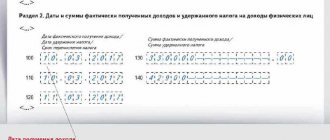What is a premium
The Labor Code of the Russian Federation does not contain such a concept. This is the name given to a monthly or quarterly payment for high quality performance of duties, achievement of high results, for anniversaries, professional holidays. Employee salary, in accordance with Art. 129 of the Labor Code of the Russian Federation, includes bonuses as one of the elements. They are stimulating and motivating.
There is no exhaustive list of grounds for monetary incentives in the Labor Code of the Russian Federation. The payment is not the employer's obligation, it is his right. The enterprise develops a list of grounds independently, having approved it in orders. The procedure and terms are determined by local acts of the establishment, collective agreements, agreements (Articles 129, 191 of the Labor Code of the Russian Federation, Letter of the Ministry of Labor dated February 14, 2017 No. 14-1 / OOG-1293).
When and for what can you deprive
The decision to cancel or reduce the bonus payment must be justified and then an order must be issued. You can deprive an employee of a payment only if it is not mandatory. Local acts that establish the payment algorithm must directly provide for the provision that bonuses are a right and not an obligation of the employer.
Labor legislation has not established an algorithm by which the absence or reduction of payment is formalized. Since the accrual system is regulated by local documents, the procedure is included in their provisions. And the employer does not need to justify the reasons for the deprivation or reduction of payments in the sample order for non-payment of bonuses (Letter of the Ministry of Labor of the Russian Federation dated March 14, 2018 No. 14-1/OOG-1874).
The grounds for punishment are, for example, circumstances related to the performance of functional duties:
- failure to implement the established plan during the assessment period;
- the presence of a disciplinary sanction during the assessed period;
- violation of established processes;
- refusal to carry out orders from management;
- failure to complete tasks on time;
- violations of work safety regulations;
- release of defective products;
- theft, fraud, shortage, etc.
IMPORTANT!
If deprivation is carried out without sufficient grounds or for a reason not established in the local act, the employee will go to court, and it will declare the punishment illegal.
Documenting
So, if the company is really facing organizational or technological changes that entail the need to reduce wages for employees, this process should be documented.
Step 1. It is necessary to document organizational or technological changes in working conditions by order of the organization.
Order concerning organizational and technological changes in working conditions
Step 2. Issuing an order to change the terms of employment contracts.
Order to change the terms of the employment contract
Step 3. Notifying employees about upcoming changes. If an employee refuses to receive a notice with a personal signature, it is necessary to record this in the appropriate act and read this notice out loud to the employee in the presence of the signatories of the act, making a note about this in the act.
Notification of changes in the terms of the employment contract
Step 4. If the employee agrees to the change in conditions, an additional agreement on the change in wages should be signed with him. If an employee refuses to work under new conditions, a notice of dismissal is made in his work book under clause 7, part 1, art. 77 Labor Code of the Russian Federation.
Summarizing the above, we note that some methods of reducing wages can be combined, for example, the first with the second and third methods. Of course, the third method of reducing wages is the most radical and therefore not always applicable, and the first two are limited by the size of the bonus and the degree of employee loyalty.
There is only one guaranteed way to reduce wages: when an employee, upon hiring or already in the process of work, signs an additional agreement on changing wages without a date or indicating specific figures. But this method is contrary to labor legislation and is used only by unscrupulous employers.
For those whose company is now just forming a remuneration system and recruiting employees, for example, in connection with the opening of new divisions, the following recommendations are applicable, aimed at more flexible regulation of employee salaries.
1. All incentive payments should be specified in the bonus regulations or in the corresponding section of the remuneration regulations. If it is necessary to reduce salaries, this document can always be revised.
2. The size of the variable part of the salary (bonus, incentive bonus or additional payment, etc.) and the criteria for their payment should not be indicated directly in the employment contract. The employment contract can include a reference to the provision on bonuses and/or remuneration. It must be remembered that an employment contract is extremely difficult to change unilaterally, without the will of the employee.
expbiz.ru
Deprivation of bonus for disciplinary violation
In this case, Art. 192 Labor Code of the Russian Federation. For violations of a disciplinary nature, the manager has the right to apply:
- comment;
- rebuke;
- dismissal.
It is impossible to deprive a bonus as a disciplinary sanction. But recovery under Art. 192 of the Labor Code of the Russian Federation may become a reason not to accrue payments. To use this provision, it must be provided for in the local act of the enterprise (Letter of the Ministry of Labor of the Russian Federation dated March 14, 2018 No. 14-1/OOG-1874).
An employer can leave an employee without bonuses if:
- the award is not mandatory;
- from the documents establishing it it directly follows that the appointment of a bonus is the right of the manager;
- the grounds for deprivation and non-payment are specified in detail in the local document of the institution.
Algorithm for dismissing an employee for absenteeism: sample order for disciplinary action
An employment contract provides for the paid performance by the employee of certain actions in favor of the employer. If the employer is not satisfied that the employee is violating the contract, he may exercise the right to impose a disciplinary sanction.
Not considered absenteeism, no-show: Normal working hours cannot exceed 40 hours per week.
The employer is required to keep records of the time actually worked by each employee.
The list of valid cases of failure to appear is not specified in the legislation; the enterprise itself determines the criterion of “respect” for each specific case. If a legal dispute arises between an employee and an employer on this issue, the court will confirm the correctness of recognition of absenteeism as a disciplinary offense.
For disciplinary action for absenteeism, an order is issued; in order to correctly draw up the document, you must adhere to the following procedure.
- position, surname, name and patronymic of the offender;
- date, exact time of absence from work (it is better to indicate when the employee arrived and left);
- time of drawing up the act;
- details of the three employees who signed the act.
In the report card, no-show is designated as “NN” (failure to appear for an unknown reason) and this day is not paid until the reason for absence is clarified. The order, like any document, must contain the following parts:
- Business name;
- date of issue of the order;
- structural subdivision;
- names of positions in accordance with the staffing table;
- last name, first name, patronymic, personnel number of the offender;
- surnames and initials of the persons who prepared the acts and reports.
Descriptive: the essence of what happened should be, as exhaustively as possible, described. Summarizing: this part reports the manager’s decision to take a disciplinary measure (announcement of a reprimand, reprimand, dismissal under Article 81.5.
Labor Code of the Russian Federation.) Order on the imposition of a disciplinary sanction for absenteeism, sample LLC "STROYGARANT" On the imposition of a disciplinary sanction On January 13 and 14, 2015, the storekeeper of warehouse No. 4 Vladimir Evgenievich Pankratov was absent from work from 9 a.m. to 6 p.m.
This is important to know: Order to cancel downtime
No documents were presented to justify the absence when returning to work on January 15, 2015. Pankratov V.E. a gross violation of Article 21 of the Labor Code of the Russian Federation and the internal regulations of STROYGARANT LLC was committed. Deputy Director Gorbunova O.A. Correct execution of documents will protect the management of the enterprise from possible lawsuits, and workers from unreasonable punishments from the employer’s administration.
How to deprive a bonus
The legislator has not established an algorithm for deprivation. These rules must be prescribed in local acts of organizations. Drawing up a sample order for deprivation of a bonus is not enough. Before making a decision on the reduction of bonuses, the employer takes a number of steps.
Step 1. Check documents regarding payment:
- an employment agreement with an employee (if it contains a provision that the bonus is part of the salary, it cannot be deprived - Part 2 of Article 22 of the Labor Code of the Russian Federation; if the bonus is defined as a payment at the discretion of the employer, assigned in the manner determined by a local act, it is possible) ;
- local act of the enterprise on bonuses (must include provisions that the payment is not the responsibility of the employer, it is not guaranteed, not fixed, and depends on the fulfillment of established conditions);
- collective agreement (if any).
Step 2. Draw up a memo documenting the fact of violation to the manager. The employee's immediate supervisor reflects in it the grounds for deprivation of bonuses.
Step 3. Conduct an analysis of the grounds for compliance with their list established in the local act of the institution.
Step 4. Request an explanation from the employee regarding the stated facts.
Step 5. Decide to issue an order not to accrue money.
Step 6. Familiarize the employee with the order and sign it.
If the institution has its own rules, you need to follow them.
What is a bonus deduction clause?
Sections of the regulation on bonuses
In order for the deprivation of an employee’s bonus for errors in work activity to be legal, it is necessary to correctly prepare a provision on the deprivation of bonuses to employees. This is an administrative document approved by order of the manager.
It is recommended to specify the following nuances in the regulatory act.
Section "General provisions". Regulatory and legislative acts are indicated. Here you should include a link to labor legislation, as well as other regulatory documents. It is imperative to indicate the goal, for example, to stimulate high-quality performance of employees’ production tasks and prevent defects in work and other negative events.
In the general section, you can indicate the algorithm for depriving employees of bonuses, namely: when the fact of this case was recorded; what document needs to be drawn up; where to report what happened; which manager will make a decision on this matter, as well as the publication of an administrative document on the punishment of the employee. It is necessary to familiarize the employee and his immediate supervisor with the issued order, so that the former knows why he was punished.
In the “Rights and Responsibilities” section, it should be clearly stated that violations must comply with legal requirements, otherwise the employer may be held liable.
How to create an order
A sample order for deprivation of a bonus for absenteeism, drunkenness or on other grounds provided for by the regulations of the institution is drawn up in a free format, since there is no statutory act defining the order template. Include the following information in your order:
- about the institution (the header of the document reflects the name, date and registration number);
- about the name of the paper;
- about the employee (full name, position and department);
- about the period for which funds will not be credited;
- about the amount of loss;
- on the grounds due to which the deprivation occurred, with reference to the provisions of the document in which it is provided for.
A sample order for non-payment of bonuses is signed by the manager. Attached to the order are the documents that served as the basis for the decision made.
Example 1. Legal reduction in the amount of bonus to an employee
At Pravosvet LLC, employees are encouraged on the basis of the Regulations on Bonuses. This regulatory act establishes that employees should be assigned and paid bonuses on two grounds. First: for high-quality and timely execution of assigned tasks (15% of salary). Second: for compliance with labor discipline (10%).
One of the employees of Pravoset LLC, Makar Pavlovich Karpov, missed the established deadlines this month while completing a production assignment. In this situation, the employer has the right to legally refuse to pay him a bonus for late completion of the task (15%). But at the same time, on the second basis (for compliance with labor discipline), he is obliged to pay bonuses (10%).
Thus, the total amount of the bonus paid to Karpov M.P. for a given month will decrease by 15%. He will only receive a bonus calculated at 10%.
Is a memo required?
A sample letter of deprivation of a bonus is not a document that is required in accordance with the Labor Code of the Russian Federation. But it can be provided for in the local act on the bonus system in the institution.
The report is prepared by an employee of the organization, usually the immediate supervisor. It must be addressed to the employer. The memo provides information about deviations made by subordinates. Misconduct must comply with the grounds for deprivation of bonuses provided for by the local act of the organization.
The form of the memo, like the order, is not determined by the legislator, that is, it can be drawn up arbitrarily. The document must indicate:
- name of the institution;
- FULL NAME. employer, position;
- FULL NAME. employee, position;
- title of the document (memorandum);
- facts confirming the grounds for deprivation of bonuses;
- a link to the organization’s local act on the bonus system;
- the wording of the proposal for a reduction in bonuses;
- date of registration of the official document;
- applicant's signature.
Reasons for the need for an order
According to Article One Hundred and Ninety-First of the Labor Code of the Russian Federation, the employer has the right to reward employees with high productivity and financial payments in the form of bonuses.
It should be mentioned that wrongful deprivation of a bonus allows an employee to file a claim in court and challenge the employer’s decision . The grounds for issuing bonus payments are specified in the employment agreement concluded between the head of the company and the employee.
The same document contains information about the job responsibilities of employees and the rules of discipline established on the territory of the company.
Failure to comply with the rules stated in the contract is the main reason for deprivation of additional and bonus payments. A legitimate reason for deprivation of a bonus can be either a violation of the organizational process or a refusal to fulfill labor obligations.
It should be noted that the employer has the right to deprive bonus payments to those employees who poorly fulfill their contractual obligations or refuse to carry out the instructions of the manager . The reason for a reprimand and other disciplinary sanctions may be regular tardiness and systematic absenteeism.
The same penalties are used against employees who violate internal work regulations or cause material damage to the company.
Violations of safety regulations or job descriptions may be grounds for deprivation of a bonus.
In some cases, the employer may deprive additional payments to employees who violate the deadline for submitting a document package or incorrectly draw up administrative reports.
It is important to note that all grounds for deprivation of bonuses are specified in the current Labor Code. And the use of other grounds for disciplinary action is a serious violation.
Below we propose to consider the process of issuing a reprimand and deprivation of bonuses:
- Within two days after the offense, the employee who violated discipline must submit an explanatory note.
- The employer must record the employee’s misconduct within thirty days from the date of violation of discipline.
- Next, a corresponding order is drawn up, on which the employee must sign.
If you refuse to sign a document, the employer will need to draw up a special act indicating the reasons for the refusal. It should be noted that the above deadlines may be extended if the employee is on vacation or sick leave.
The legislation stipulates possible lawful actions of employers when depriving an employee of bonuses.
According to current legislation, the employer does not have the right to deprive an employee of financial resources. However, this rule only applies to wages. The bonus belongs to the category of additional payments that are established by the employer.
It is important to note that bonuses are issued only when the employer has the financial ability to reward the work of its staff . The grounds for bonus payments to employees are indicated on the pages of the employment agreement, “Regulations on bonuses” or in the collective agreement.
The same documents must list the grounds for deprivation of bonus payments.
An employer who wants to prevent the possibility of poor performance of labor obligations on the part of employees must include a separate section in the employment contract, which will list situations leading to deprivation of bonus payments.
Such situations include regular lateness and absenteeism, the creation of a force majeure situation and disruption of the labor process. Violations such as theft and appearing at the workplace while intoxicated deserve special attention.
The one hundred and fifty-fifth article of the Labor Code lists situations in which the employer has the right to deprive an employee of part of the payments due to him.
It is important to note that when choosing this disciplinary sanction, it is necessary to prepare an appropriate order.
This document must contain information about the employee’s misconduct and the basis for making such a decision.
Rules for drawing up an order
Filling out local acts used on the territory of an enterprise is rarely regulated by legislative documents.
However, orders for the appointment or deprivation of additional payments must contain a number of mandatory information. First of all, these documents must indicate the reason for using disciplinary measures against the employee.
Depending on the severity of the offense, the employee may be completely or partially deprived of additional payments.
Please note that this document must contain compelling reasons for making such a decision. The basis for complete deprivation of the bonus may be material damage caused or regular absenteeism.
Being a few minutes late is not grounds for imposing penalties. Current legislation provides company managers with a choice between different types of disciplinary sanctions.
According to article one hundred and ninety-second of the Labor Code of the Russian Federation, the following penalties may be imposed on an employee who violates discipline:
- Making a comment.
- Deprivation of bonus payments is permissible only in those situations listed in current legislation.
- Issuance of a reprimand - a reprimand can be withdrawn if the employee does not violate work regulations over the next year. After the reprimand is lifted, information about its issuance is removed from the employee’s personal file.
- Order to terminate the employment contract.
If an employer unlawfully deprives an employee of a bonus, he can file an application with the commission for resolving labor disputes or with a trade union.
There is a special procedure for preparing administrative documents. At the first stage of this process, the employee who violated discipline must provide an explanation for his action.
In the event that an employee refuses to submit an explanatory note, the head of the company draws up a corresponding act. Next, the head of the organization draws up an order to deprive the bonus for failure to fulfill official duties.
An employee who has violated discipline must be familiarized with the contents of the administrative document against signature.
It is important to note that an employee can appeal the employer’s decision by appealing to a labor commission or court.
Administrative documentation is prepared in two copies, one of which is transferred to the personnel department, and the second is transferred to the employee . It is important to pay attention to the fact that employee violations are not recorded on the pages of the work book .
In some cases, the employer needs to provide eyewitnesses who can confirm the legality of the measures taken. In the event of force majeure circumstances that caused a disruption in work activity or an industrial accident, the employer will need to involve additional experts who will identify the extent of the violation on the part of the employee.
It is the analysis of experts that can be the basis for deprivation of a bonus or dismissal.
In some cases, an employer may choose more than one disciplinary action. This may involve simultaneous deprivation of bonuses and a severe reprimand.
As practice shows, in such a situation it is best to draw up two administrative documents, one of which will contain information about the reprimand, and the second about the deprivation of the bonus.
An employee who has violated discipline must submit an explanatory note indicating the reasons for his offense.
In case of partial or complete deprivation of an employee's bonus, the employer must be guided by the rules of current legislation. Also, the reason for making such a decision should not contradict the employment agreement concluded between the head of the company and the employee. Otherwise, this document will not receive due legal force, and the decision made may be challenged in court.










